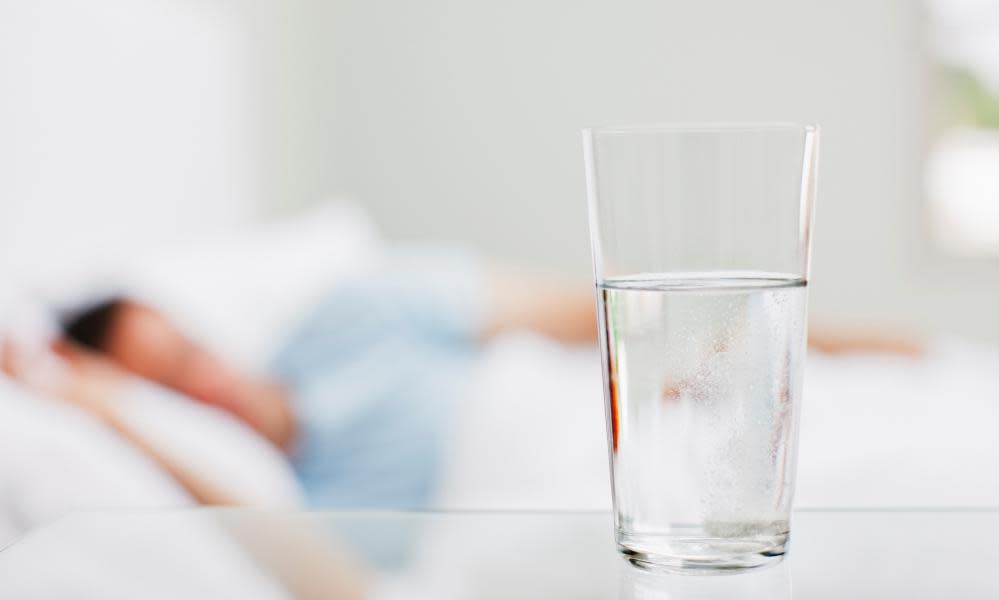‘Doctor, can I drink water?’ – why the simplest of questions can be the most upsetting

In people who have difficulty swallowing, thin fluids risk causing aspiration pneumonia – but we must listen to our patients
“What is the hardest question a patient has asked you?” a medical student wonders on a ward round of dozens of patients with every manner of concern.
She has just heard a few cancer patients ask if treatment will extend their lives. A proper conversation about the goals of care and what to expect is one of the most rewarding in medicine. Then there are questions about novel items in a fast-paced world. Did I catch the news about the wonder drug in mice? What do I think about the latest clinical trial? Is the new treatment better than the old? Patients don’t mind hearing, “I don’t know” provided it is followed by, “but I will find out.” They worry when “I don’t know” sounds like “I don’t care”.
Other hard questions in medicine involve judgment. Defining futile care. Avoiding vexatious colleagues. Challenging the culture. It can be difficult grappling with these questions when there is no one “right thing” to do. But these, too, one learns to navigate.
The question that I really struggle with is one of staggering simplicity and yet upsetting like few others.
“Doctor, can I drink water?”
An elderly man looks eagerly at the drinks trolley. Affected by consecutive strokes, his limbs are weak. His face droops and his voice slurs somewhat although, if you focus, you can make out his words. After his wife’s death, his health has taken a downturn and his days are sedentary.
The first stroke gave him an unsteady gait but he still enjoyed reading and sipping tea. A second stroke put him in a facility and led to a swallowing assessment that dictated a pureed diet and thickened fluids. When he protested, he was told that any instructions to alter his diet must be approved by a doctor. The residential care doctor refused, warning that thin fluids risked causing aspiration pneumonia.
Now he has presented with an infection. When his children visit, he can’t sustain conversation, and everyone concedes that he is deteriorating. In a rare coincidence, he is awake during my rounds. When I ask how we can make him comfortable, he responds by becoming animated and asking for a glass of water.
“Sure,” I say, thinking that it is the least of wishes to fulfil.
“He is not allowed,” his nurse interrupts, pointing to the sign above his bed.
Whispering a quiet aside to the nurse, the resident gets a cup of water and a straw. We raise the head of the bed, explain the risks to the plainly excited patient, and hold the straw to his lips. He takes a long drink and immediately starts coughing. He slows down and sips again. Satisfaction illuminates his face. Using his good hand to grasp mine, he proclaims this first drink of water in two years as the best medicine of all. I note the glaring irony, considering the cost of hospitalisation in the tens of thousands of dollars.
“Don’t stop my water,” he begs before falling asleep from the happy exertion. We pull down the sign and note that the patient, nearing the end of life, can drink water “at risk”.
There is no strong evidence that banning thin fluids limits the risk of aspiration pneumonia, since patients can still aspirate on their secretions. But there is evidence that thickened water is a poor substitute for water – the thickening agent can leave a problematic residue and patients can become dehydrated because of the reluctance to drink something that’s promoted as the consistency of “nectar” but feels more like a tub of lubricant.
Speech pathologists are experts who emphasise that their advice should be considered in the context of the whole patient, but this patient’s assessment unwittingly creates a storm. When it smells dispute, medicine slows right down. Every day my team tries to honour the patient’s autonomy and is forced to live the adage, “There’s many a slip between the cup and the lip.”
Up to 30% of nursing home residents are prescribed thickened fluids and, once in place, the order often stays. But if “at-risk” patients are allowed to drink water (as most want), the next question is, “What happens if they aspirate?” This requires an honest discussion about the futility of treating recurrent aspiration pneumonia with antibiotics and hospitalisation and allowing people to make an informed choice.
I have once been deprived of water while awaiting surgery that kept getting pushed back – I found this “routine” precaution the most distressing aspect of the experience. I am not surprised that a study found that patients would be willing to trade off five years of a 10-year life expectancy to be allowed to drink water.
The standoff surrounding our patient took a week to resolve but, happily, he returned to residential care drinking water as his heart desired in the weeks before he died.
In February a palliative care physician appealed on Twitter that when a dying patient requests a drink, “Don’t thicken it. Make sure he gets what he wants. Don’t ask anybody. It won’t take long. Go get it by yourself.”
When a patient requests to drink cold ice water before removing high-flow nasal cannula (to withdraw life support), that will be the last one in his life.
- Don't thicken it.
- Make sure he gets what he wants.
- Don't ask anybody. It won't take long. Go get it by yourself.— Shunichi Nakagawa (@snakagawa_md) February 13, 2022
Such simple, respectful medical practice should scarcely need urging when the buzzword in health is patient-centred care. We still have far to go for the practice of medicine to remain in touch with the most human of wants even as we chase after more glittering goals.

 Yahoo News
Yahoo News 
